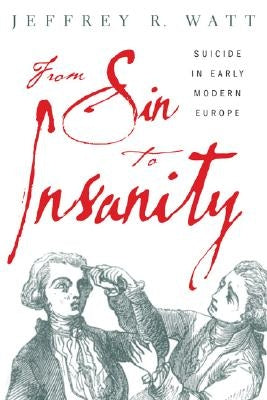Before you leave...
Take 20% off your first order
20% off
Enter the code below at checkout to get 20% off your first order
Discover summer reading lists for all ages & interests!
Find Your Next Read

In the broadest treatment yet of suicide in Europe during the period 1500-1800, 11 authors combine elements of social, cultural, legal, and intellectual history to trace important changes in the ways Europeans experienced and understood voluntary death. Well into the seventeenth century, Europeans viewed suicide as a terrible crime and an unforgivable sin resulting from demonic temptation. By the late eighteenth century, however, suicide was rarely subject to judicial penalties, and society tended to blame self-inflicted death on insanity rather than on the devil.
From Sin to Insanity shows that early modern Europe witnessed nothing less than the birth of modern suicide: increasing in frequency, self-inflicted death became decriminalized, secularized, and medicalized, viewed as a regrettable but not shameful result of reversals in fortune or physical or mental infirmity. The ten chapters focus on suicide cases and attitudes toward self-murder from the fifteenth to the early nineteenth centuries in geographical settings as diverse as Scandinavia and Hungary, France and Germany, England and Switzerland, Spain and the Netherlands.
Jeffrey R. Watt is Professor of History at the University of Mississippi. He is the author of The Making of Modern Marriage: Matrimonial Control and the Rise of Sentiment in Neuc禀tel, 1550-1800 (also from Cornell) and Choosing Death: Suicide and Calvinism in Early Modern Geneva and the editor of The Long Reformation.
Thanks for subscribing!
This email has been registered!
Take 20% off your first order
Enter the code below at checkout to get 20% off your first order